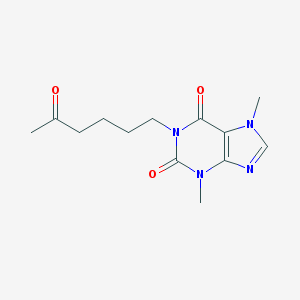-
Categories
-
Pharmaceutical Intermediates
-
Active Pharmaceutical Ingredients
-
Food Additives
- Industrial Coatings
- Agrochemicals
- Dyes and Pigments
- Surfactant
- Flavors and Fragrances
- Chemical Reagents
- Catalyst and Auxiliary
- Natural Products
- Inorganic Chemistry
-
Organic Chemistry
-
Biochemical Engineering
- Analytical Chemistry
-
Cosmetic Ingredient
- Water Treatment Chemical
-
Pharmaceutical Intermediates
Promotion
ECHEMI Mall
Wholesale
Weekly Price
Exhibition
News
-
Trade Service
artificial intelligence can highly reliably detect one of the most common forms of blood cancer,
acute myeloid
of acute myeloid leukemia. Researchers at the German Center for Neurodegenerative Diseases and the University of Bonn have now demonstrated this in a proof-of-concept study. Their method is based on the analysis of the activity of cell genes in the blood. In practice, this approach can support routine diagnosis and may speed up the start of treatment. The findings have been published in the journal Science.
Artificial intelligence is one of the most discussed topics in the field of medicine, especially in the field of diagnostics.
"
Our goal is to study this potential on the basis of a concrete example,said Joahim
.
, "Because it requires a lot of data, we evaluated the activity of blood cell genes, " explains Professor Schultz. Many studies have been carried out on this subject, the results of which are available through the database. Therefore, there will be a huge database. We've collected almost everything we can get. "
genetically active fingerprintsSchultz and his colleagues focused on
"
" transcription group
"
, a fingerprint of genetic activity. In each cell, depending on its condition, only certain genes are actually
"
on "
, which is reflected in their gene activity map. It is these data from cells in blood samples that span thousands of genes in current studies.
"
transcription group holds important information about the state of the cells. However, classic diagnostics are based on different data. "So we want to know what it's like to use artificial intelligence to analyze transcription groups, that is, algorithms that can be trained," said Schultz, who is a member of the Bonn
team of excellence. In the long run, we intend to apply this approach to further topics, particularly in the area of dementia. The
current research focuses on leukemia. This leukemia, if not properly treated, can lead to death within a few weeks. Acute myeloid leukemia is associated with the proliferation of pathologically altered bone marrow cells, which eventually enter the bloodstream. Eventually both healthy and tumor cells drift in the blood. All of these cells exhibit typical patterns of gene activity and are considered in the analysis. Data
,000
blood samples
(
from
105
different studies
)
was taken into account: this is the largest data set for leukemia studies to date. About
,
of these blood samples,
100,
from individuals diagnosed with acute myeloid leukemia, and the rest from individuals with other diseases or healthy individuals.
High hit rates
provided some data sets for their algorithms. Enter information that includes whether the sample came from patients with acute granulocytic leukemia. The algorithm then searches the transcription group for disease-specific patterns. This is largely an automated process. It's called machine learning,
,"
Schultz said. Of course, we know the classifications listed in the original data, but the software doesn't. Then we check out the hit rate. Some application methods are more than 99%
the
of . In fact, we tested various methods of machine learning and artificial intelligence. In fact, one algorithm is particularly good, but the others are lagging behind. "
in practice?"
"This approach supports
diagnosis
helps save costs when it's put into use," Schultz said. In principle, blood samples taken by family doctors are sufficient to be sent to the laboratory for analysis. I don't think the
will be
50 euros. The diagnosis of classical acute myeloid leukemia includes many methods. Schultz points out that some of them cost hundreds of euros per run. However, we have not yet developed a feasible test method. We have only proved that this method is feasible in principle. So we've laid the groundwork for development testing. Dr
stressed that the diagnosis of acute myeloid leukemia will continue to require a specialist doctor in the future.
"
to provide experts with a tool to support their diagnosis. In addition, many patients go through a real adventure until they finally get a specialist diagnosis. Because in the early stages, the symptoms of acute granulocytic leukemia may be similar to those of a severe cold. However, acute myeloid leukemia is a life-threatening disease that should be treated as soon as possible. According to our study, blood tests seem possible, and it is conceivable that family doctors have clarified their suspicions about acute myeloid leukemia. When suspicion is confirmed, the patient is referred to an expert. The diagnosis may have started earlier then than it is now, and treatment will begin earlier. ”
(
cyy123.com
)







